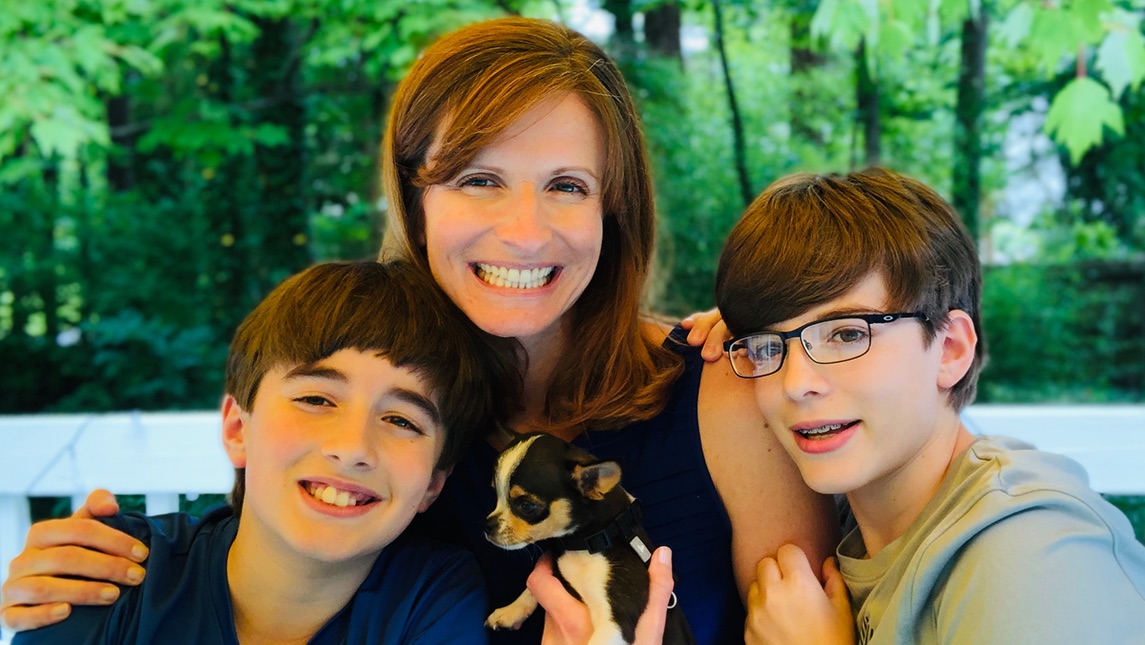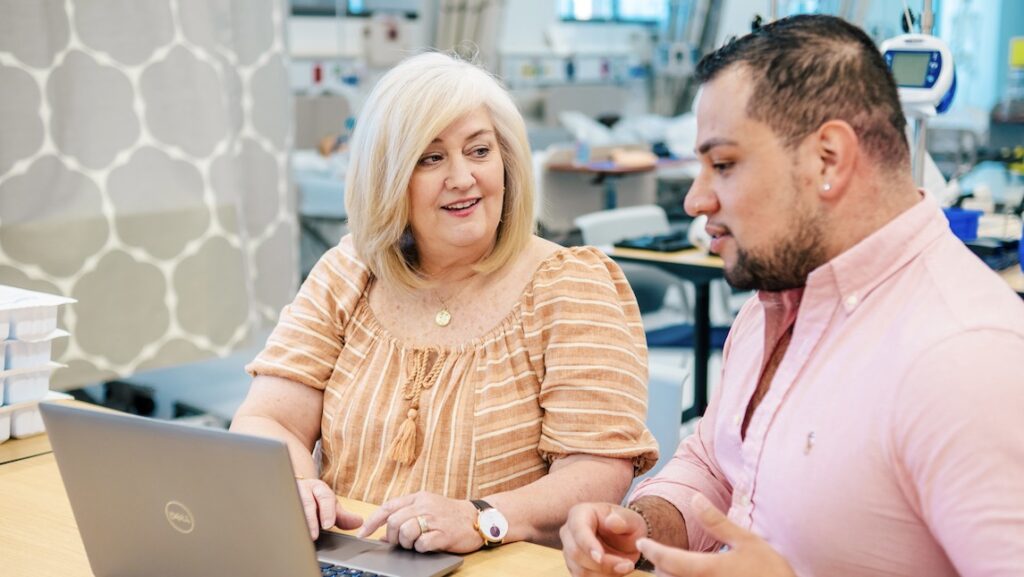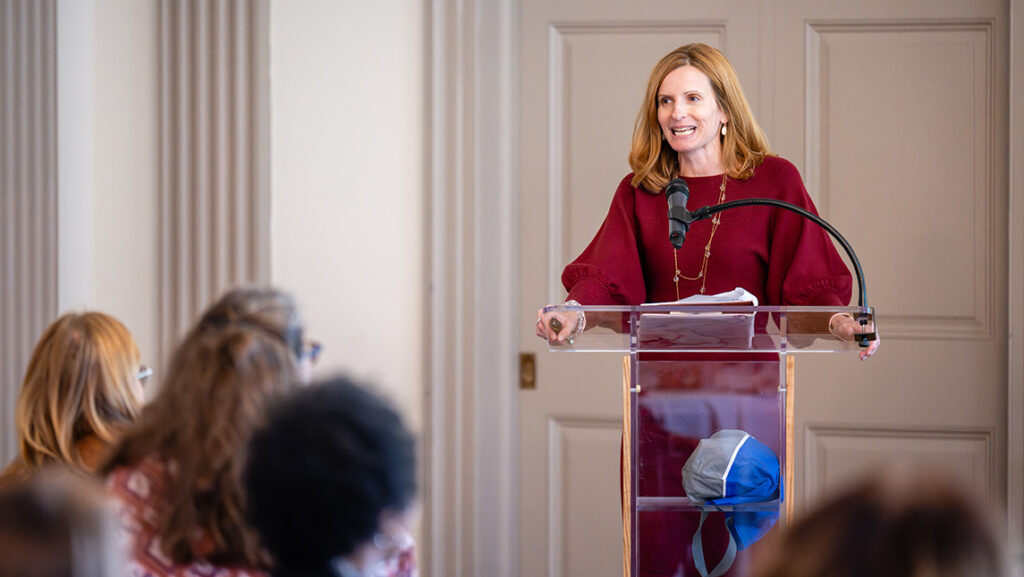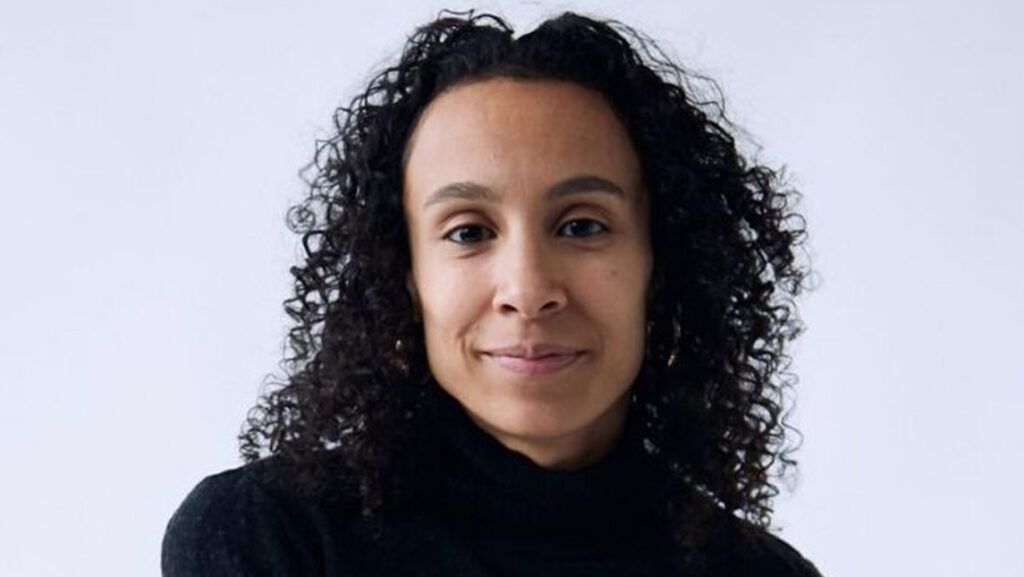
Before the COVID-19 pandemic, families juggled busy schedules and stuck to set routines. Adults went to work and carpooled their kids to extracurricular activities after school. Many college students enjoyed their independence on campuses far away from mom and dad’s rules.
But once quarantine began, school-aged children were taken out of the structure and stability of a traditional classroom. Parents took on the role of teacher while simultaneously working. College students found themselves deprived of their newfound freedom.
So just how much family togetherness is too much family togetherness?
Family dynamics play a large role in how everyone is dealing with quarantining, and those dynamics tend to shift often, adding conflict and tension to an already stressful time.
Dr. Christine Murray, director of the UNC Greensboro Center for Youth, Family, and Community Partnerships, identifies the shifts families are experiencing and provides insight on how to navigate these changes in the interview below.
What shifts in family dynamics are some experiencing as a result of the pandemic?
The answer to this question is constantly evolving and changing. What would have been the answer to this question at the beginning of the pandemic is in a lot of ways different than what the answer is today, and that answer could even change in the next hour. For example, some parents were having to play the role of teacher while children were still in school, and now, they are faced with the new challenge of lack of childcare because summer camps are canceled, daycares are closed, and so on.
As a mother to a 10-year-old and a 13-year-old, I can say that on a personal level, I appreciate the extra time I have with my kids. It’s nice to not be running from activity to activity. But then in another moment, my sons will be fighting over the Xbox, and I’ll think, “I can’t take this fighting anymore!” So, dynamics can shift pretty quickly. I think many families right now are experiencing an emotional rollercoaster with their relationships, especially for those navigating changes such as shifts in their routines and going back to work. They may be wondering, “Who will watch the kids? What if I contract the virus and bring it home?”
I think that on a week-to-week basis, sometimes even hour-to-hour, one of the things adding a lot of stress to families and relationships is just how much things are changing in the world around us. It’s putting families and relationships in a position to constantly be shifting and feeling as though you need to always be able to adapt to that change and stay on top of it. But you also need to have a sense of stability and routine in a family, especially when you have kids. So this frequent change of demands, even for people who like change and cope with it well, is very stressful because you don’t have normal connections to your usual support system.
What can one do to navigate these shifts and additional stress?
One of the major tips in any relationship is to spend time together but to also have time apart. It’s healthy to have outside interests and friendships or connections with your community, yet that’s been physically taken away from us. So that’s a big challenge for families as they deal with the pressures of shifting dynamics: you don’t have your normal support system to lean on. But I think people are doing a good job staying connected through social media, virtual happy hours, phone calls, and so on. It’s not going to offer you that same level of support as if you were going to school or going into work and seeing your friends every day, but it can provide some vital support.
I think it’s also important to not look too far ahead, even though you may be tempted too. So much is uncertain right now, so stay focused on what you know is happening in the world today and in your home today. If you do find yourself thinking ahead, try scenario planning for the future rather than worrying about it.
Many families now are also facing grief over health emergencies, sickness, and even the death of a loved one. Any of these situations are difficult at any time, but especially during the pandemic when people are disconnected and unable to be close to loved ones. It’s especially important for families facing these losses to reach out for support and practice self-care to honor their emotions and needs during those difficult times.
What is the best way for individual family members to adapt and meet the needs of other family members? Whether that be respecting personal space, providing a quiet place to work, and so on.
Good communication is so important for discussing these needs and trying to talk things through. One of the things I’ve tried to work on with my kids is constantly troubleshooting and problem-solving. What were the stressors of today? What challenges came up? What’s something I can try differently tomorrow? In my family, we’ve tried different routines and ways of managing time throughout the day. Sometimes it works, and sometimes it doesn’t, but we are constantly experimenting with different solutions. Don’t despair and think, “This is just how it’s going to be until this is all over.” Instead, ask yourself, “What are some small steps I can take to try and improve on how I’m handling the situation next time?”
Could you speak specifically to the family dynamics college students are experiencing and how they can cope?
At this age, many college students need to use really good communication and problem-solving skills to help them navigate potentially being under the same roof as their parents again. I think this presents a good opportunity for college students to get to know their family members in a new and different way. Look at them as being on the same team as you to work through different problems and anticipate new challenges that might come up.
Of course, clashes are bound to happen if you’re a college student who has been operating independently and is now back home with your parents with rules to follow. That could cause a lot of tension and lead to major stress and conflict in the family. Good communication and compromise should be put into play here. Again, think of it as you’re all on the same team.
Also, college students may be grieving some losses in their lives, so it’s important that they ask for support from friends or family if they find themselves feeling sad or cheated out of their ideal college experience. I also want to mention that for some college students, being home is not a safe place to be, whether it’s a physically or emotionally unsafe environment that they’ve been forced back into. There is an increased risk for domestic violence and child abuse in families during this time. If you can’t explore and find other living arrangements, reach out for help. There are still resources available for those dealing with abuse or even the other emotional challenges I’ve mentioned that one might experience while navigating the pandemic. Counselors are still available right now via telehealth, and it is important to reach out if you find yourself struggling. A few resources include the National Domestic Violence Hotline, the Psychology Today therapist directory, and for those that are in the area, the Guilford County Family Justice Center.
I think it’s also important for any college student that is grieving to stay connected to friends and find ways to stay connected to campus. Think creatively and problem solve. Acknowledge that this is not what you had in mind for your college experience, and think of ways you can mimic that experience you wanted. There may be clubs or groups in your community that you can connect with. Or, you can find a new interest or hobby (something that can be done while social distancing), and use that common interest to connect with people in your area.
What are some of the major takeaways and lessons to be learned from this experience of being quarantined with your family?
Change is hard, but it’s also an opportunity for growth. I think we will all look back on this time and realize we have become more flexible and open-minded as a result of it. There is also a level of self-awareness that comes as a result of how you manage stress and how others around you manage stress. Some of us have gotten closer to our family members or have found new creative ways to connect with friends and family virtually that can still be practiced after the pandemic.
I think this time has also allowed everyone to think about what’s important in their life. We have been given the chance to really evaluate our priorities. We live in a very busy society, and that can take a toll on our relationships by not being able to find time for togetherness. Now we have the time to truly get to know each other and spend quality time together. These are valuable lessons to have learned that will help us navigate our relationships in the future.
Interview by Alexandra McQueen, University Communications


